The Latest from Boing Boing |  |
- Dead Fish and Gluttony: Why Too Much of a Good Thing is Threatening the Gulf Ecosystem
- Notes from a news-site paywall attempt
- Iain Banks and other prominent Scots call for reform of Royal Bank of Scotland: "Royal Bank of Sustainability"
- Infographic: the compleat and astounding history of storage
- Steampunk fiction for your mobile
- Paul Pope illustrates Japan's grooviest concept cars
- Keychain screwdrivers of stern utilitarian beauty
- High-mag pollen photos highlight the invisible beauty of plants' reproductive spritz
- Sad, hurdy-gurdy Happy Birthday rendition from dying electronic candle
- Abroad, they know Murdoch well
- Department of Defense orders 2,200 PS3s
- Bigfoot and Yeti Christmas tree ornaments
- Neutrality takes no side but that of convenience
- Boing Boing Gift Guide 2009: fiction! (part 5/6)
| Dead Fish and Gluttony: Why Too Much of a Good Thing is Threatening the Gulf Ecosystem Posted: 29 Nov 2009 07:43 PM PST  Last week, I had far, far too much of several good things. Turkey, stuffing, green beans, sweet potatoes, mashed potatoes, corn, biscuits, gravy, cranberry sauce, green Jell-o salad and pie. "Uff-da," as my father-in-law says. Taken in moderation, these foods provide healthy sustenance. (OK, maybe not the sweet potatoes. Or the Jell-o salad.) Taken in excess, they meant antacids and me, bemoaning the terrible mistakes I had made. The ecosystem in the Mississippi Delta is a lot like me at Thanksgiving, according to Nancy Rabalais, executive director of the Louisiana Universities Marine Consortium. Granted, that wasn't the exact analogy she used when I saw her speak at the 2009 Nobel Conference at Gustavus Adolphus College in St. Peter, Minn. But the comparison is apt. Rabalais studies the effects of nitrogen and phosphorus on the Delta's aquatic life. Taken in moderation, she said, those nutrients help make fish fat and happy. Taken in excess, the fish are left in far worse shape than I was last Thursday night. Of course, unlike my holiday overeating, the fish have no control over whether their servings of nutrients are sane or gluttonous. The fish suffer, but we're responsible for the terrible mistake... Technically, Rabalais said, nitrogen and phosphorous are good things. Without them, you don't get life. In fact, a little extra nitrogen and phosphorous actually improve fishy existence, by plumping up the plankton population. Plankton feed on nutrients, fish feed on plankton and people serve the fish up in a nice butter sauce. Those nutrients are also food for plants. In fact, that's a big part of why we get excess nitrogen and phosphorous in the water system to begin with, because both are used as fertilizer on American farms. For example, in 2007, American corn farmers used more than 5 million tons of nitrogenous fertilizer. But, while corn may have big appetite for plant food, but it's about as efficient at "eating" as a toddler with a bowl of spaghetti. You know the kid will wear as much food as she eats. And a corn field will often use as little as half the fertilizer it's fed. The rest just sits on the soil until it's washed away into the nearest creek by rain or irrigation. Several river systems and thousands of miles away, the Mississippi Delta vomits out water saturated with the nitrogen runoff of every corn farm in the Midwest. In the Gulf of Mexico, the nitrogen becomes a buffet for another plant--algae--which, in the sort of natural cycle that completely fails to inspire Disney song writers, first cut off light needed by underwater plants and animals and eventually die off in numbers so large that their decomposition consumes every drop of available oxygen, suffocating aquatic life for miles around. It's the Circle of Death. And it doesn't make a great musical number. The kind of total hypoxia event that leads to a mass fish kill doesn't happen very often, Rabalais said, but the destruction doesn't have to be that vast and noticeable to still be a serious problem. Even if oxygen levels just drop a little bit, that can affect which types of fish and other marine life can live in which areas. Some will die, some will swim away...but, either way, ecosystems, human fishing businesses and food supplies suffer. Fixing the problem is a lot harder than defining it. So many factors contribute. It's not just that the Mississippi water system happens to flow through America's agricultural heartland, or that the nitrogen load released at the Delta has tripled in the last 25 years...it's also the fact that we need to keep the big River from flooding. Historically, the River could dump some of its nitrogen load back on the land before it reached the sea. Now it's more or less firmly channeled in a way that keeps nitrogen in the water.
Rabalais' team has been able to document the increase in nutrients in the Gulf, but they don't have a clear way of dealing with it yet. There have been some initiatives aimed at reducing the nutrient load by reducing fertilizer runoff, she said, but most are purely voluntary and, by her account, haven't really accomplished much. This is an awkward place to leave a lecture (or a story), but Rabalais said that one of the most important things right now is making sure people are actually aware of the problem, so that they take it into account. Case in point, she said, at the same time the federal government was working with her organization to promote voluntary fertilizer-reduction initiatives, it was also pushing (via financial incentives) fertilizer-intensive corn ethanol. We may not know how to fix this problem, but we do know what doesn't work.
Watch Nancy Rabalais' 2009 Nobel Conference Lecture The image used in this story is from an actual hypoxia event, in a river in New Bern, North Carolina. Photographer BLW Photography says, "They littered the banks of the river, the steps at the park from where the water rose, and were on the surface of the river as far as you could see. Very disturbing." Used via CC. Previously: |
| Notes from a news-site paywall attempt Posted: 30 Nov 2009 03:33 AM PST 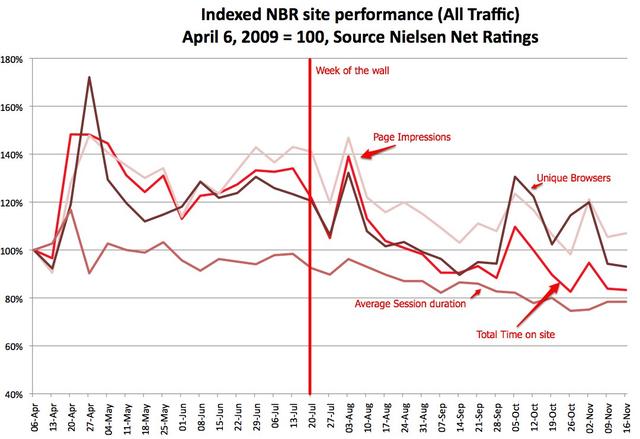 New Zealand's National Business Review stuck a paywall in front of its website back in mid-July, betting that enough readers would stick around and pay for "quality" that it would make up for the stupendous drop in readership. Looks like they bet wrong. Their traffic plummeted, and traffic to their free competitors skyrocketed. On every metric, NBR is failing: pageviews, session duration, unique readers, and total time on site. NBR has a high paywall price, so maybe they've got enough money from corporate subscribers to make up for the advertising losses -- but how long will they keep them for, with all the links, visits, and attention going to their competitors? NBR's performance since the subscription wall was built (via O'Reilly Radar) Previously:
|
| Posted: 30 Nov 2009 02:52 AM PST Iain Banks, the acclaimed Scottish sf and thriller writer, has joined with an illustrious list of prominent Scots in calling on the British government to reform the Royal Bank of Scotland. RBS received a titanic tax-funded bailout (much of which was diverted into a stupendous pension for Fred Goodwin, the bank's erstwhile CEO, who led it to ruin), which means that the taxpayer is now a major shareholder in the bank. But the bank is still refusing to lend to Britons who need mortgages, preferring instead to make dirty investments in climate-wrecking tar-sands in Alberta, as well as taking the astonishing step of loaning money to Kraft, an American firm, which is trying to buy Cadbury's a British firm -- if Kraft succeeds, then RBS will have funnelled British workers' pay into a loan that resulted in the shut-down of British factories and sent British jobs to America. More than 30 signatories, including Gordon Roddick, who founded the Body Shop with his late wife Anita, leading green campaigner Tony Juniper and Rev Ian Galloway, convenor of the Church of Scotland, take the government to task for failing to push RBS and the other bailed-out banks into supporting socially useful investments.Celebrities, MPs and clergy urge government to rein in RBS Previously: |
| Infographic: the compleat and astounding history of storage Posted: 29 Nov 2009 09:37 PM PST  Geekologie's superb "Evolution of Storage" infographic traces the history of data, music and photo storage from the wax cylinder to the 2TB hard drive. I think I'll print this out and hang it on the wall of my office, for the same reason poets kept skulls on their writing desks*: "this too shall pass, all is hubris and folly, the future rushes up upon you." Geekologie's superb "Evolution of Storage" infographic traces the history of data, music and photo storage from the wax cylinder to the 2TB hard drive. I think I'll print this out and hang it on the wall of my office, for the same reason poets kept skulls on their writing desks*: "this too shall pass, all is hubris and folly, the future rushes up upon you." Incidentally, why is a raven like a writing-desk? Because Poe wrote on both of them. Previously:
|
| Steampunk fiction for your mobile Posted: 29 Nov 2009 09:31 PM PST |
| Paul Pope illustrates Japan's grooviest concept cars Posted: 29 Nov 2009 11:24 PM PST   John sez, "Batman: Year 100 creator Paul Pope illustrated three Japanese concept cars for GQ, as well as a flying car of his own design. You can see all the illustrations at the GQ link." John sez, "Batman: Year 100 creator Paul Pope illustrated three Japanese concept cars for GQ, as well as a flying car of his own design. You can see all the illustrations at the GQ link."Superpunch's gallery of photos of the actual cars (Thanks, John!) Previously:
|
| Keychain screwdrivers of stern utilitarian beauty Posted: 29 Nov 2009 09:19 PM PST  R. "Diesel Sweeties" Stevens sez, "These steel keychain-mounted screwdrivers are the ultimate in unbranded, unbreakable gadget gifts. I've had mine since the summer and they work like a charm and make great boxcutters. Planning to pick up a few more sets for stocking stuffers! Unlike a Swiss Army Knife or the like, I've never had trouble flying with these." Purdy, too. Previously: |
| High-mag pollen photos highlight the invisible beauty of plants' reproductive spritz Posted: 29 Nov 2009 09:16 PM PST  Marilyn sez, "Until 375,000 years ago, plants had be by physically close to each other in order to reproduce. Pollen changed all that. From the article by Rob Dunn in the Dec. issue of National Geographic:" In the 300,000 pollen-bearing plant species on Earth, there are 300,000 different forms of pollen. The great variety in colors, shapes, and textures of the grains has evolved in accordance with each plant's biological particulars. Beetle-pollinated plants tend to have smooth, sticky pollen, the better to adhere to the lumbering beetles' backs. Plants pollinated by fast-moving bees or flies may have spiny pollen that lodges easily between the insects' hairs. Plants pollinated by bigger animals, such as bats, sometimes have bigger pollen, though not always -- perhaps not even most of the time. In the details of pollen's variety, more remains to be explained than is understood.A friend with allergies once compared living through high-pollen-count days as "being the involuntary star in a vegetage-kingdom bukkake movie." I haven't been able to think of pollen the same way since. Love Is in the Air (Thanks, Marilyn!) |
| Sad, hurdy-gurdy Happy Birthday rendition from dying electronic candle Posted: 29 Nov 2009 09:10 PM PST A reader writes, "This was our birthday candle a year ago, one day the candle just started playing again (maybe heat change...) and was pathetically trying to get "happy birthday" to sound right... You can't imagine how badly one candle can get this tune." It's got a sad, defiant, haunted hurdy-gurdy sound to it, like the ghost of Tom Waits was trapped in it, playing a Casiotone. |
| Abroad, they know Murdoch well Posted: 29 Nov 2009 06:40 PM PST Alt-history hypothesis: if the news industry was already being subsidized by search-engine exclusivity, Murdoch would be itching to upend the market and go to Google. Slash-and-burn, not desperate weak-partner deals with assimilators like Microsoft, is his way. |
| Department of Defense orders 2,200 PS3s Posted: 29 Nov 2009 04:25 PM PST Good thing the PlayStation 3 dropped in price. The US Department of Defense ordered 2,200 more of the consoles to crank up their PS3 supercomputer, currently consisting of 336 of the devices in a Linux cluster. According to the official Justification Review Document (cache link) required for the purchase of the PS3s, the game platform, with its IBM Cell microprocessor, is a much better value for the money than IBM's Cell-powered products designed for supercomputing applications. Ars Technica points out that the price difference comes in part because the PS3 is a loss leader for Sony. From the Justification Review Document: With respect to cell processors, a single 1U server configured with two 3.2GHz cell processors can cost up to $8K while two Sony PS3s cost approximately $600. Though a single 3.2 GHz cell processor can deliver over 200 GFLOPS, whereas the Sony PS3 configuration delivers approximately 150 GFLOPS, the approximately tenfold cost difference per GFLOP makes the Sony PS3 the only viable technology for HPC applications."Sony still subsidizing US military supercomputer efforts" (Ars Technica, thanks Rob Rader!)
|
| Bigfoot and Yeti Christmas tree ornaments Posted: 29 Nov 2009 03:19 PM PST   These handsome Sasquatch and Yeti ornaments for the Christmas Tree are around 4.5" tall and made from glass and resin. They're available from Loren Coleman's International Cryptozoology Museum gift shop. Coming soon on BB, an interview with Coleman about the new public museum! These handsome Sasquatch and Yeti ornaments for the Christmas Tree are around 4.5" tall and made from glass and resin. They're available from Loren Coleman's International Cryptozoology Museum gift shop. Coming soon on BB, an interview with Coleman about the new public museum!Bigfoot & Yeti Ornaments |
| Neutrality takes no side but that of convenience Posted: 29 Nov 2009 11:13 AM PST The Swiss have voted to ban minarets. There's no mincing words over why: the measure is designed to curtail Islam. Hitherto held among the most liberal democracies, Switzerland now faces international condemnation for such a blatant (if superficial) suppression of religious freedom. The measure is a cipher for a deeper weakness: the assumed inability of Swiss culture to withstand the influence of another. |
| Boing Boing Gift Guide 2009: fiction! (part 5/6) Posted: 30 Nov 2009 02:47 AM PST Mark and I have rounded up some of our favorite items from our 2009 Boing Boing reviews for the second-annual Boing Boing gift guide. We'll do one a day for the next six days, covering media (music/games/DVDs), gadgets and stuff, kids' books, novels, nonfiction, and comics/graphic novels/art books. Today, it's novels! In a time of great change, fiction can sometimes provide better understanding than facts alone. "As the pace of technological change accelerates, the job of the science fiction writer becomes not harder, but easier--and more necessary," he writes. "After all, the more confused we are by our contemporary technology, the more opportunities there are to tell stories that lessen that confusion." L. Gordon Crovitz, Wall Street Journal Full review | Purchase
Part Six: Comix, Art Books, etc Last year's guides:
|
| You are subscribed to email updates from Boing Boing To stop receiving these emails, you may unsubscribe now. | Email delivery powered by Google |
| Google Inc., 20 West Kinzie, Chicago IL USA 60610 | |

 John sez, "Steampunk Tales, the electronic magazine of original steampunk pulp fiction, just released its 4th issue. Selling for only $1.99 on most platforms, Steampunk Tales: Issue 4 delivers 10 tales of adventure and daring for less than the cost of a good cup of coffee."
John sez, "Steampunk Tales, the electronic magazine of original steampunk pulp fiction, just released its 4th issue. Selling for only $1.99 on most platforms, Steampunk Tales: Issue 4 delivers 10 tales of adventure and daring for less than the cost of a good cup of coffee." 

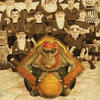





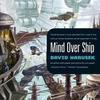
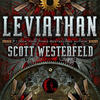
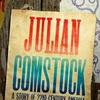

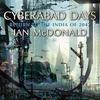


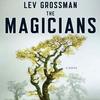
No comments:
Post a Comment